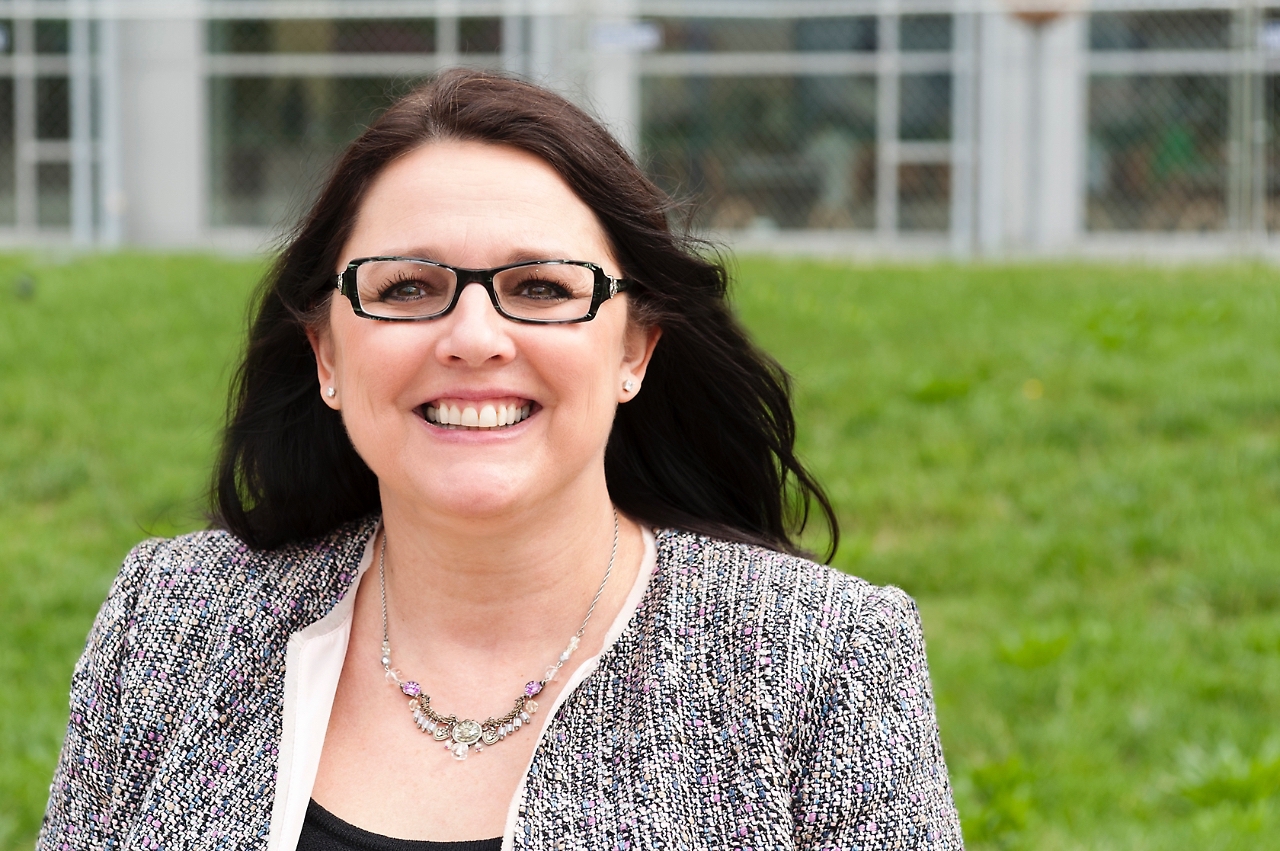Alumni Spotlight: Katherine Seley-Radtke ’96
Katherine Seley-Radtke is the Presidential Research Professor of Chemistry and Biochemistry at the University of Maryland, Baltimore County, or UMBC. She earned her doctorate in organic chemistry at Auburn University under the mentorship of Stewart Schneller. Seley-Radtke followed a non-traditional pathway to her career in science, having enrolled in college at the age of 15, but leaving to marry when she was 18. She later returned to academia in her late 30s to pursue her bachelor’s and doctorate degrees while raising a family.
Her research, which is primarily funded by the National Institutes of Health, involves drug discovery and development. She uses a synthetic organic/medicinal chemistry approach to nucleoside and heterocyclic drug discovery and development. Current projects include the investigation of flexible nucleosides/nucleobases "fleximers" for use against SARS, MERS-CoV, Ebola, Zika, Yellow Fever and Dengue, among other viruses. Notably, she and her group were the first researchers to publish a nucleoside inhibiting coronaviruses, with potent activity against both SARS and MERS. Not just focused on viruses, she also has two compounds currently in animal studies against several cancers such as triple negative breast, lung, renal and prostate.
Seley-Radtke has given more than 100 invited talks worldwide in 25 countries, published more than 70 peer-reviewed papers, and has organized a number of international conferences focused on medicinal chemistry and drug design. She is currently the president of the International Society of Nucleosides, Nucleotides and Nucleic Acids, or IS3NA, and an executive board member for the International Society for Antiviral Research, or ISAR, as well as serving on a number of committees for both societies. She is one of the National Academies of Science’s Jefferson Science Fellows at the U.S. Department of State. She is also a member of the American Chemical Society's Medicinal Chemistry Division Awards Committee, and an associate editor for Antiviral Chemistry and Chemotherapy, as well as Current Protocols in Chemical Biology.
Most recently, Seley-Radtke was named Maryland Chemist of the Year for 2016 by the American Chemical Society.
What does the accomplishment of being named Maryland’s Chemist of the Year mean to you?
This is an incredible honor. There are so many outstanding chemists in Maryland, many of whom are my colleagues. I still can’t quite believe I was selected!
You were the keynote speaker at the 2008 SWSM Symposium. Why are programs like the Society of Women in Sciences and Mathematics important?
Women still remain a minority in many areas of science, including chemistry, however, I think we are making important strides. For example, I have many more female colleagues at UMBC than I did when I started out as an assistant professor at Georgia Tech (there were only two of us) 18 years ago. More importantly, since our enrollment numbers for women are at 50 percent or more at both the undergraduate and graduate levels, I think it is very important for young women to have successful role models to get them excited about science.
What is the most rewarding part of your career?
Two things; first, being able to do the kind of science that I do. Drug design is challenging and at times, even frustrating, but knowing that every day you are working to try to find cures for neglected diseases such as MERS, SARS, Zika, Dengue and Ebola, as well as cancer, is very rewarding.
The second is helping young scientists, particularly women, gain the confidence to pursue and be successful in a career in chemistry. As president of IS3NA, I started a scholarship program for early career women. This would allow graduate students, postdocs and young investigators to get training in someone else’s laboratory, to attend a specialized workshop, or attend a specialized conference. I felt this would not only expand their skillset and their scientific expertise, but it would also help them gain self-confidence. Fortunately, friends of mine, Professor David Chu, of the University of Georgia, and his wife, Jane, decided to support my vision, and I am deeply grateful for their support. Because of their support, we now have the IS3NA Chu Family Foundation Scholarships for Early Career Women, as well as a similar award for the International Society of Antiviral Research. I am also the program director for UMBC’s NIH-funded Chemistry Biology Interface Graduate Training program. This program features hands-on and cross-disciplinary training, learning how to give talks and presentations, as well as helping students develop professionally so they can go on and be successful in their future careers. To me, helping students succeed is one of the most important things we do, and it is tremendously rewarding!
Latest Headlines
-
02/12/2025
-
02/11/2025
-
02/10/2025
-
01/30/2025
-
12/03/2024

